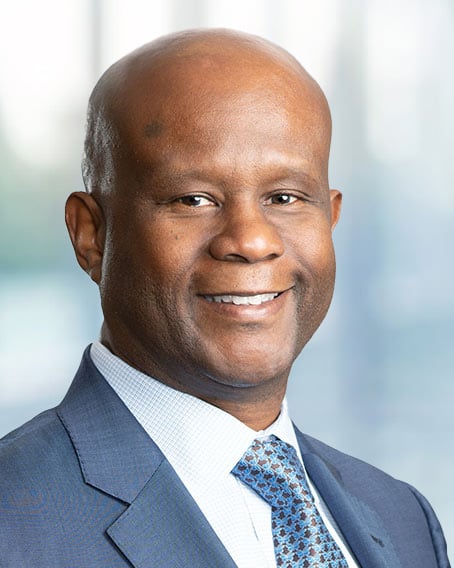Summary
On December 22, 2016, the world’s largest manufacturer of generic pharmaceuticals, Teva Pharmaceuticals (“Teva”), agreed to pay $519 million in FCPA-related criminal penalties, disgorgement, and interest. The Israeli company Teva entered into a deferred prosecution agreement with the U.S. Department of Justice (“DOJ”) to settle allegations that it had bribed government officials in Russia, Ukraine, and Mexico. Teva’s settlement is the fourth-largest Foreign Corrupt Practices Act (“FCPA”) settlement ever, and the largest-ever by a pharmaceutical company. The $519 million payment imposed on Teva is significantly higher than the next-highest FCPA-related payment imposed on a pharmaceutical company, $70 million imposed in 2011.
The Teva settlement came on the heels of Odebrecht and Braskem’s global $3.5 billion settlement with authorities in the United States, Brazil, and Switzerland, announced the day before, on December 21, 2016. The Brazilian-based construction company Odebrecht pleaded guilty to a conspiracy to violate the FCPA, with the fine to be determined in the future at sentencing on April 17, 2017. Braskem, Odebrecht’s petrochemical unit, also pleaded guilty.
Teva: Bribes to Government Officials and Inadequate Internal Controls
The Teva agreement detailed the company’s payment of bribes to government officials in Russia, Ukraine, and Mexico, and the company’s lack of internal controls to prevent bribery.
In Russia, Teva executives and employees bribed a high-ranking government official in order to increase sales of Teva’s multiple sclerosis drug Copaxone, one of Teva’s most profitable products. The Russian government official influenced the Russian Ministry of Health’s annual drug purchase auctions to increase Copaxone sales. In return, Teva employed the Russian government official’s drug repackaging and distribution company. From 2010 until at least 2012, he earned approximately $65 million through inflated profit margins to his company.
In Ukraine, Teva also bribed a senior Ukrainian Ministry of Health official to influence Ukraine’s approval of Teva’s drug registrations, including those of Copaxone and insulins. These drug registrations were necessary to market and sell products within Ukraine. From 2001 to 2011, Teva employed the official as a “registration consultant,” paying him a monthly fee along with other items of value, including travel, totaling approximately $200,000.
In Mexico, Teva’s Mexican subsidiary bribed doctors starting in at least 2005 to prescribe Copaxone. Teva became aware of these bribes in 2009, when the company was developing its anti-corruption compliance program. Despite this awareness, Teva approved and implemented an anti-bribery compliance program that could neither prevent nor detect bribes. Additionally, compliance managers were put in place who either could not or would not enforce Teva’s anti-corruption policies.
Teva: Deferred Prosecution Agreement Accounts for “Substantial Cooperation and Remediation”
The U.S. government’s investigation of Teva began in 2012 with a U.S. Securities and Exchange Commission (“SEC”) subpoena. Teva learned of its FCPA problems that same year, and immediately took steps to address the problems. In 2012, Teva voluntarily began a comprehensive investigation into its global operations and named a global head of compliance. Teva engaged independent counsel to conduct a global corruption risk assessment. In 2013, Teva replaced its entire Russian leadership team. Teva no longer employs the individuals involved in the bribes.
On December 22, 2016, Teva entered into a deferred prosecution agreement (“DPA”) with the DOJ, agreeing to pay criminal penalties of approximately $283 million. The DPA requires that Teva work with an independent compliance monitor for three years. Teva also agreed to pay the SEC approximately $236 million in disgorgement and pre-judgment interest. The DOJ charged the company with two counts: one of conspiracy to violate the FCPA and one of failing to implement adequate internal controls. Teva Russia pleaded guilty to one count of conspiracy to violate the FCPA.
Teva’s remediation efforts were noted by the DOJ, including (1) terminating employees, (2) enhancing compliance, (3) improving anti-corruption training, (4) adopting a stand-alone third-party due diligence program, (5) making Teva’s control functions more independent and establishing an office to address reports of misconduct, and (6) strengthening the internal audit and investigations teams.
While the DOJ reduced Teva’s criminal penalty by 20% from the bottom of sentencing guidelines because of “substantial cooperation and remediation,” Teva did not get the largest possible reduction due to actions that delayed the government’s investigation, including “overbroad assertions of attorney-client privilege” and slow responses to document requests. Additionally, Teva did not get any credit for self-disclosing.
Odebrecht & Braskem: Bribery of Politicians and Political Parties
The December 21, 2016 settlement with Odebrecht and Braskem was part of “Operation Car Wash,” a long-running investigation by Brazil prosecutors into corruption at Petrobras, Brazil’s state energy company. Earlier in 2016, Odebrecht’s CEO had been sentenced to 19 years imprisonment.
Odebrecht admitted to a bribery and bid-rigging scheme that started as early as 2001, through which the company paid approximately $788 million in bribes to government officials and political parties in many countries. The bribes were directed by company management and were paid using shell companies, off-shore bank accounts, and off-book transactions. A dedicated department within Odebrecht, the “Division of Structured Operations,” administered these bribes. The Division of Structured Operations had an entirely separate off-books communications system that allowed communication using codenames and passwords via secure emails and instant messages.
As Odebrecht’s petrochemical unit, Braskem contributed about $250 million to Odebrecht’s bribe system. This money ended up with Brazilian politicians and political parties, as well as with a Petrobras official. In exchange, Braskem received benefits that included contracts with Petrobras, preferential rates for the purchase of Petrobras’ raw materials, and favorable legislation reducing Braskem’s Brazil tax liabilities.
On December 21, 2016, Odebrecht and Braskem settled with the DOJ, Brazil’s Ministerio Publico Federal, and Switzerland’s Office of the Attorney General. The plea agreements require that the companies employ an independent compliance monitor for three years. The agreements accounted for the companies’ failure to voluntarily disclose; the nature and seriousness of the offenses, which involved the highest levels of the companies, lasted many years, and occurred in multiple countries; and the lack of an effective compliance and ethics program at the time of the offenses.
Odebrecht agreed that the appropriate criminal penalty would be $4.5 billion, but the company has claimed it can only pay $2.6 billion. The penalty will be determined during sentencing on April 17, 2017. Eighty percent of Odebrecht’s penalty will go to Brazil, with the United States and Switzerland each receiving 10 percent. Braskem pled guilty to one count of conspiring to violate the FCPA, agreeing to pay a $632 million criminal penalty. Braskem settled related charges with the SEC, agreeing to pay $325 million in disgorgement of profits. Seventy percent of Braskem’s penalty will go to Brazil, with the United States and Switzerland each receiving 15 percent. Between the penalties and the disgorgement, the United States will receive approximately $94.8 million from Braskem.
The companies’ remediation efforts were noted by the DOJ, including (1) disciplining and terminating employees, (2) heightening controls and compliance programs, and (3) “significantly increasing” compliance resources.
Odebrecht’s penalties were reduced by 25 percent from the bottom of sentencing guidelines as a result of Odebrecht’s “full cooperation,” and Braskem’s penalties were reduced by 15 percent from the bottom of sentencing guidelines as a result of Braskem’s “partial cooperation.”
Implication
With the Odebrecht, Braskem, and Teva payments, U.S. authorities will have imposed a record-setting $2.15 billion in FCPA-related payments in 2016, greatly exceeding the previous annual record for FCPA-related payments of $1.6 billion set in 2014. None of the companies voluntarily self-disclosed, and the U.S. government insisted that all three employ independent compliance monitors for three years. These settlements show that companies must cooperate promptly and completely in order to receive full financial credit for cooperation.
Stay Up To Date with Ropes & Gray
Ropes & Gray attorneys provide timely analysis on legal developments, court decisions and changes in legislation and regulations.
Stay in the loop with all things Ropes & Gray, and find out more about our people, culture, initiatives and everything that’s happening.
We regularly notify our clients and contacts of significant legal developments, news, webinars and teleconferences that affect their industries.


